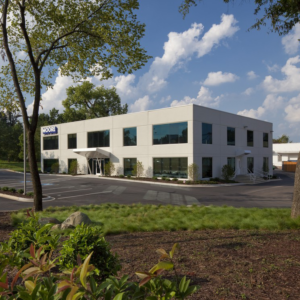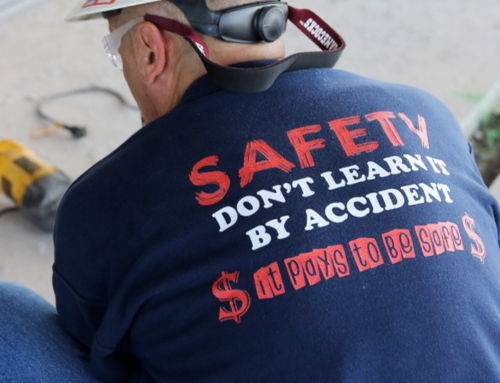Building a Sustainable Future: How LEED Certification Works and Why It Matters
As concerns about climate change and environmental degradation continue to rise, industries across the board are seeking ways to minimize their ecological footprint. One sector making significant strides in this regard is electrical contracting. From energy-efficient lighting systems to renewable energy integration, electrical contractors play a crucial role in building sustainable infrastructure. One notable initiative that underscores this commitment to sustainability is the pursuit of LEED certification.
What is LEED?
LEED, or Leadership in Energy and Environmental Design, is a globally recognized green building certification program developed by the U.S. Green Building Council (USGBC). It provides a framework for designing, constructing, operating, and maintaining buildings in an environmentally responsible manner. Achieving LEED certification involves meeting rigorous standards across several key areas, including energy efficiency, water conservation, indoor environmental quality, materials selection, and sustainable site development.

Why LEED Certification Matters
LEED certification serves as a tangible demonstration of a building’s commitment to sustainability and environmental responsibility. Beyond the inherent benefits of reduced energy consumption and lower operating costs, LEED-certified buildings offer numerous advantages to occupants, owners, and communities. They provide healthier indoor environments with improved air quality, natural daylighting, and optimal thermal comfort, enhancing occupant well-being and productivity. From a broader perspective, LEED certification contributes to the global effort to combat climate change by reducing greenhouse gas emissions and conserving natural resources. By adhering to rigorous green building standards, LEED-certified projects set a precedent for sustainable development and inspire others to follow suit, amplifying their impact on a larger scale.
How Electrical Contracting Plays a Role in LEED Certification
Electrical contractors are instrumental in helping buildings meet LEED requirements. They collaborate closely with architects, engineers, and other construction professionals to implement innovative solutions that reduce energy consumption and minimize environmental impact. Here’s how electrical contracting firms contribute to the sustainability goals inherent in LEED certification:
- Energy-Efficient Lighting: One of the most effective ways to reduce a building’s energy usage is through efficient lighting systems. Electrical contractors are experts in designing and installing lighting solutions that maximize energy savings without compromising illumination quality. LED technology, in particular, has revolutionized the lighting industry by offering superior energy efficiency and longevity compared to traditional lighting sources.
- Renewable Energy Integration: Transitioning to renewable energy sources such as solar and wind power is a cornerstone of sustainable building practices. Electrical contractors play a vital role in the integration of renewable energy systems into buildings, including the installation of solar panels, wind turbines, and energy storage solutions. By harnessing clean energy sources, buildings can reduce their reliance on fossil fuels and decrease greenhouse gas emissions.
- Advanced Controls and Automation: Modern buildings are equipped with sophisticated control systems that optimize energy usage based on occupancy, daylight levels, and other factors. Electrical contractors install and configure these advanced controls, including programmable thermostats, occupancy sensors, and building automation systems, to enhance energy efficiency and occupant comfort. By intelligently managing energy consumption, buildings can achieve significant energy savings over time.
- Sustainable Materials and Practices: In addition to energy considerations, LEED certification places a strong emphasis on sustainable materials selection and construction practices. Electrical contractors work closely with project teams to choose eco-friendly materials, such as low-VOC wiring and energy-efficient appliances, that meet LEED criteria. They also adhere to best practices for waste management, recycling, and pollution prevention throughout the construction process.
Setting up a building to be LEED certified requires a collaborative effort from all stakeholders involved in the project, including electrical contracting firms like WB Moore. By leveraging their expertise in energy efficiency, renewable energy integration, and sustainable practices, electrical contractors play a pivotal role in creating buildings that are not only environmentally responsible but also healthier and more cost-effective to operate in the long run.
It’s worth noting that WB Moore’s commitment to sustainability extends beyond their projects. As evidenced by their LEED Platinum-certified headquarters, they lead by example, demonstrating their dedication to environmental stewardship and responsible business practices. By promoting sustainability within the electrical contracting industry, companies like WB Moore are driving positive change and shaping a more sustainable future for generations to come.
WB Moore stands as a leading electrical contractor serving the Carolinas, providing an extensive array of services, such as Electrical Construction, Electrical Services, Low-Voltage, Engineering, Pre-Construction Services, and Special Projects, assuring the fulfillment of diverse project requirements. Our foremost commitment is to safety, evident through our unwavering dedication to rigorous safety training initiatives. Opt for WB Moore to access unmatched proficiency and tailored solutions that surpass your expectations.
All engineering work is performed in our Charlotte office. WBM Group, PLLC provides all standalone engineering services.



 916 N Poplar St, Charlotte, NC 28206
916 N Poplar St, Charlotte, NC 28206 (704) 331-9300
(704) 331-9300 info@wbmoore.com
info@wbmoore.com